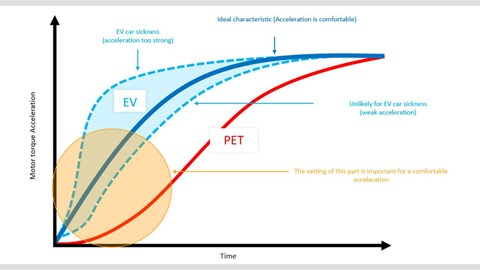► Honda motion sickness tech should ease EV queasiness
► Changes acceleration mapping, ‘won’t affect performance’
► We’ve tested it in e:Ny1
Honda is working on anti-travel sickness acceleration mapping in a bid to make its upcoming electric sports cars more usable in day-to-day life.
Early iterations of the software have already debuted in the Honda e:Ny1, with the company saying motion sickness is a growing concern in electric vehicles. Certainly in our hands electric rocketships such as the Tesla Model S Plaid and Porsche Taycan have made us feel a touch ill.
The new tech will be included in Honda’s upcoming electric sports cars, the first of which will be previewed later this year.
How does Honda motion sickenss tech work?
We’ve tested it out in the e:Ny1 and can confirm no motion sickness symptoms. Whether that’s down to the software, which makes the car notably restrained between 0-10mph, or the fact that it only has 201bhp and a 0-62mph time of 7.6 seconds is up for debate.
The big job for the firm is working on acceleration pick-up and throttle modulation to make it feel less violent. Part of that work includes making acceleration more linear and more in line with combustion engines, without it affecting performance.
Honda technical consultant, Kotaro Yamamoto, told CAR: ‘The issue with motion sickness comes from the car moving in a way you were not expecting it to.

‘Any kind of movement will result in the brain getting an impulse of something happening. This is where irritations can occur.
‘Electric motors have high torque at low speed. And if you don’t smooth this out, sickness occurs. At low speeds it’s smooth, but going from low speeds to high speeds you have an inertia.
‘We monitor three parameters; pedal angle, pedal angle speed and vehicle speed. The art of this setting is to reduce motion sickness and maintain dynamicness.
‘Despite smoothing these problems out, Honda motion sickness technology won’t affect performance.’